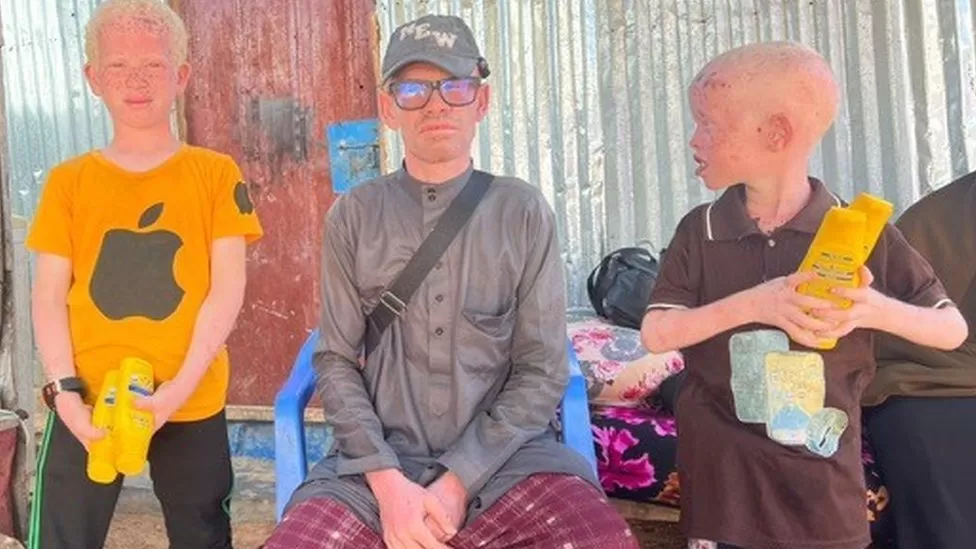Somalis with albinism Pelted with stones and raw eggs

After leaving his rural home in Hiraan, Mr. Mohamed has struggled to find a place to live in Mogadishu. The condition also affects his brothers.
“Our community constantly insulted and tortured us. We were beaten up and mocked for the pale colour of our skin, hair, and eyes,” he says.
“I thought Mogadishu would offer me a better life, but I was wrong.”
Despite numerous rejections, Mr Mohamed finally found a room in a shared house after a long search.
In Hamar Weyne district, the city’s oldest district, he ended up paying $30 (£23) a month to live in a storage shed.
He says that people think he is cursed. “They often throw salt water and raw eggs on my doorstep because they believe it will protect them.”
Eventually, Mohamed found a job as a cleaner in a restaurant earning between $1.40 and $4 (£3) per day.
There wasn’t much time left for it.
As a result, customers stopped eating there, saying they feared he would infect them with albinism, even though it is not a contagious disease.
In search of a new job, he went from restaurant to restaurant, but no one would hire him. My phone number was on a placard I held up on the streets so people could make mobile payments to me.”
Begging rarely pays for his meals or rent, let alone the sunblock and glasses he needs to protect his sensitive skin and eyes. Albino people lack melanin, a pigment that protects their skin from the sun and colors their eyes, hair, and skin.
Mr Mohamed says he cannot afford sunglasses. My eyes are constantly in agony because of the dust and highly polluted traffic in the market where I beg. My sight is rapidly deteriorating.”
“Sometimes people give me their leftovers to eat. Other times I don’t have anything.”
Mohamed’s dreams of earning money to send back to his family, especially his albino brothers, have been crushed.
